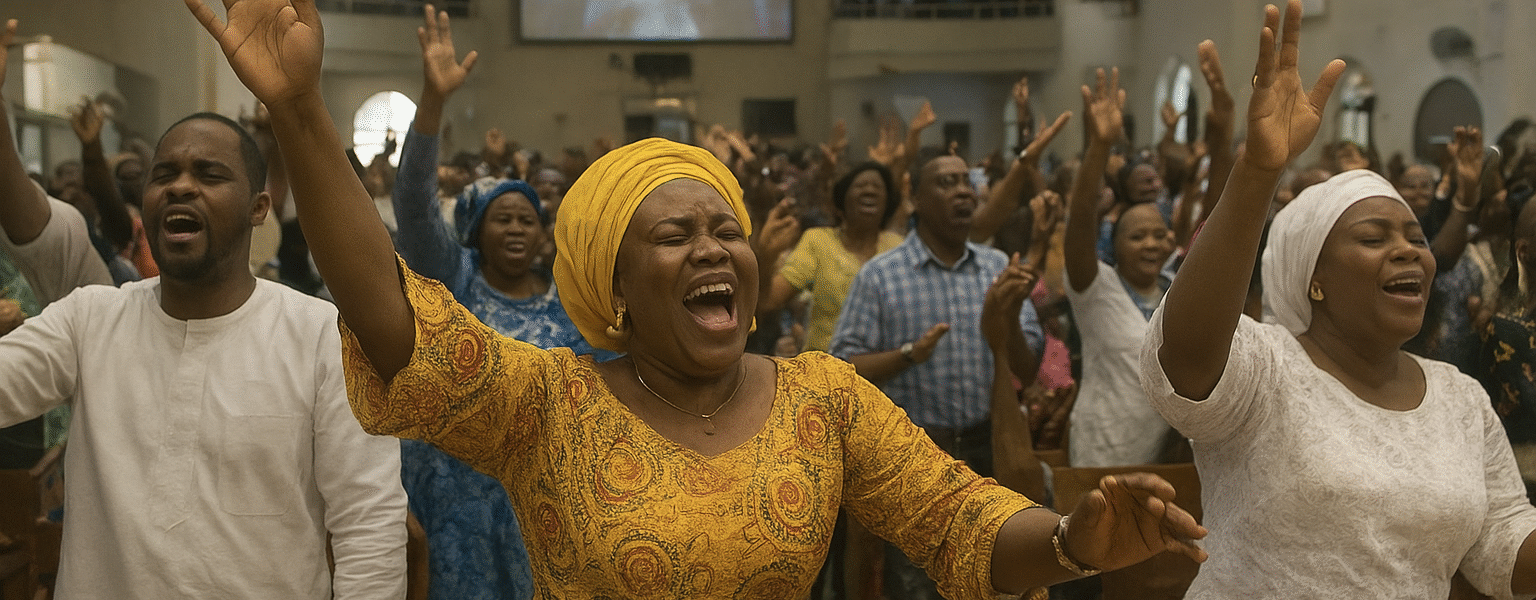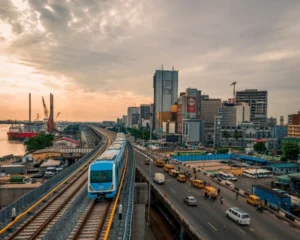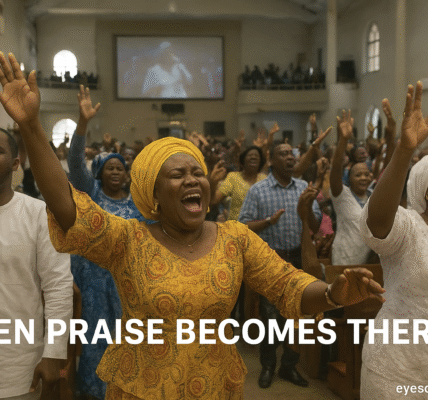In Lagos, Sundays are more than a weekly ritual; they are a release, a celebration, and for many, an emotional therapy session disguised as worship. Step into any bustling church in Surulere, Ikoyi, or Lekki, and the scene is unmistakable — the choir strikes up, drums pound, voices rise, and suddenly, bodies start moving in synchrony. Here, worship isn’t just a spiritual exercise — it is an act of emotional liberation. Eyes Of Lagos reports,
From Soweto in South Africa to the heart of Lagos, African Christians have long embraced the physicality of praise. In Nigeria, this tradition has evolved into a mesmerizing blend of music, dance, and communal catharsis. Congregants sway, jump, kneel, and wave their hands high, often breaking into spontaneous shouts of joy. For many, this isn’t merely ritual; it is a therapeutic expression of feelings too deep to put into words.
Praise as Emotional Release
In a city defined by relentless traffic, economic pressure, and social turbulence, church becomes a sanctuary. For ordinary Lagosians — traders, office workers, students, and drivers alike — the pressures of daily life accumulate like storm clouds. Enter the church: a space where sorrow can be unburdened, anxiety alleviated, and hope restored.
Take the case of Chidinma, a young banker in Lagos Mainland. She recounts how energetic worship saved her during a period of severe depression following personal loss.
“When I walked into church that Sunday, I was tired, broken, and drained. But as soon as the choir started singing, and everyone raised their hands and danced, I felt my shoulders lighten. By the end of service, I was smiling and laughing. That energy heals you; it lifts the weight you carry,” she says.
Psychologists have long acknowledged the therapeutic power of music and movement. Dance stimulates endorphins, music triggers emotional release, and communal expression reinforces social support — all of which help reduce stress and anxiety. In Nigerian churches, the effect is amplified because worship is not only participatory but also deeply communal.
The Cultural Rhythm of Praise
Nigerian worship is inseparable from its cultural roots. Drums, shakers, and Afrobeat-influenced gospel rhythms create a musical tapestry that invites the congregation to engage physically with their faith. Unlike more restrained forms of worship, Nigerian praise encourages every member — young or old — to express themselves fully.
For Pastor Samuel Obafemi of a popular Lagos-based church, dance in worship is not only encouraged but considered essential.
“Movement is part of worship,” he explains. “When you dance, you are surrendering your body as a temple. The spirit moves, and so does the congregation. It is how we connect emotionally with God and with one another.”
This openness to physical expression sets Nigerian churches apart from many Western congregations where worship is often quieter and more structured. Here, praise is visceral, sometimes chaotic, yet profoundly healing.
Every Sunday brings countless personal testimonies of transformation. Take Ayo, a trader in Oshodi, who credits a lively choir performance with helping him overcome years of unresolved anger after losing a loved one. Or Fatima, a university student, who finds that clapping and dancing in church relieves the tension that builds up during long, stressful academic weeks.
“I can’t explain it logically,” Fatima says, smiling. “But when we sing together, clap together, and move together, it feels like all my worries are gone — even if just for a few hours.”
Such testimonies are echoed across denominations, from the Redeemed Christian Church of God and Mountain of Fire Ministries to smaller independent charismatic churches. The phenomenon transcends social class, age, and educational background — uniting the community in shared emotional and spiritual experiences.
Praise, Hope, and Resilience
Beyond personal relief, praise in Nigerian churches builds resilience. In an environment where uncertainty and hardship are daily companions, collective worship instills hope. Dancing, shouting, and singing with others becomes a ritualistic way to reaffirm faith, trust, and optimism.
Social psychologists argue that communal emotional expression — particularly through music and movement — strengthens bonds between individuals. In Lagos churches, this means congregants leave service not only spiritually rejuvenated but socially supported, ready to face the challenges of the coming week.
A Therapeutic Tradition
It’s no coincidence that Nigerian churches have become hubs for emotional well-being. Here, praise is both a spiritual and psychological exercise, rooted in tradition, culture, and lived experience. It is a practice that acknowledges the human need to release, celebrate, and heal through collective expression.
For many worshippers, this form of “therapy” is vital. In a city like Lagos, where the pace is relentless and pressures are constant, a few hours of ecstatic praise provides a mental reset. It restores energy, calms the mind, and uplifts the soul — all in a single service.
As Chidinma, Ayo, and Fatima testify, praise is more than ritual; it is medicine. The dance, the music, and the shouts of hallelujah carry weight far beyond the church walls, helping believers navigate the complexities of life with renewed hope.
In Lagos, as in many parts of Nigeria, worship is therapy, praise is release, and dancing is healing. The city’s churches are not only spiritual centers but also sanctuaries for the heart and mind. And for the millions who attend every Sunday, the experience is a reminder that even amid hardship, there is joy, there is connection, and there is hope.








